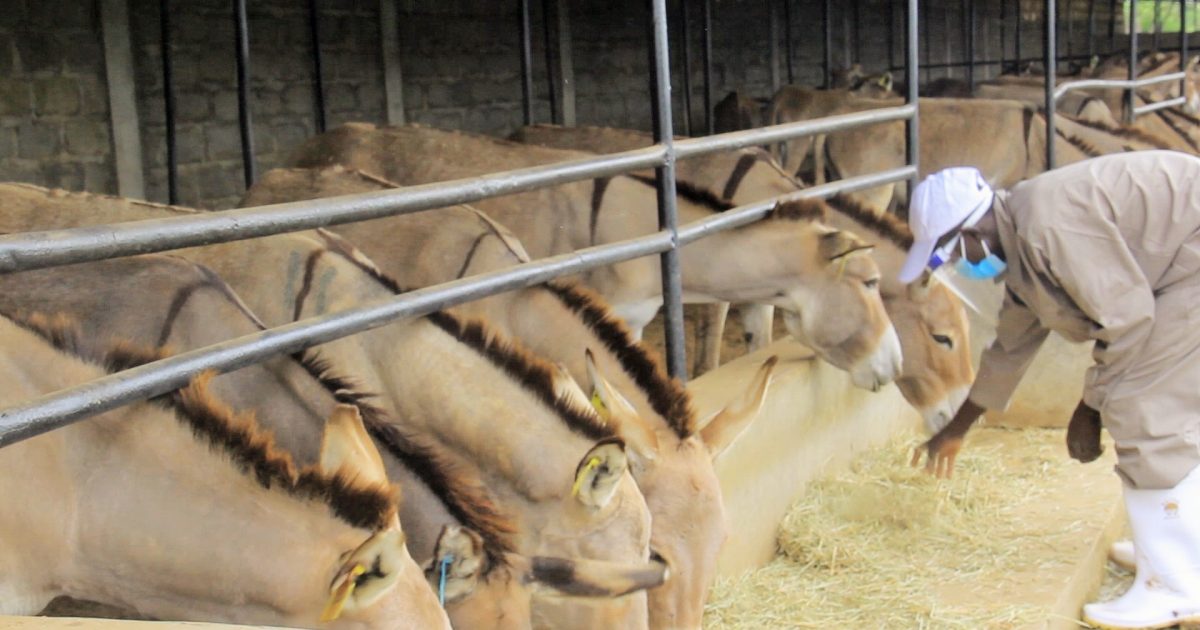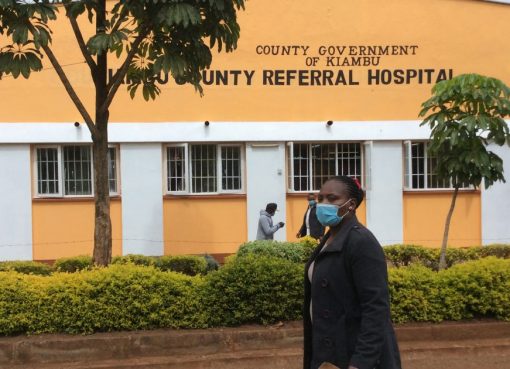From 2016 to March this year, Mogotio town in Baringo County enjoyed a vibrant economy supported by the lucrative donkey meat industry, after two Chinese nationalities Lu Jing and Lu Donglin set up a Sh300 million abattoir at Chemongoch in the area.
When Goldox Donkey Abattoir started its operations after the then Agriculture Cabinet Secretary Willy Bett declared it an export slaughterhouse, the sleepy Mogotio town instantly transformed into one of the strongholds of international trade in the country.
But early this year, the government slapped an embargo on slaughter of donkeys and exportation of their products before revoking licenses of four existing slaughterhouses in the country.
Agriculture, Livestock and Fisheries and Cooperatives Cabinet Secretary Peter Munya said the ban was enforced against a backdrop of dwindling donkey numbers occasioned by rampant theft of the beast of burden in a well-orchestrated syndicate, which benefited slaughterhouse owners at the expense of citizens.
Other donkey slaughter houses affected by the ban included Star Brilliant Abattoir in Maraigushu (Nakuru), Silzha Limited (Turkana) and Fuhai Machakos Trading Company Limited (Machakos).
The four slaughter houses were established following the amendment of the Meat Control Act in 2012 to classify donkeys and horses as food animals. Subsequently, donkey slaughterhouses were established with the aim of exporting the meat to international markets.
However, today Mogotio is a pale shadow of its former self. Rusty business premises, low population and slow business characterize the once vibrant town.
Area Member of Parliament Dr. Daniel Tuitoek is now petitioning the government to lift the ban as the abattoir is now breeding its own donkeys on a 6-acre piece of land to supplement animals provided by farmers.
Dr. Tuitoek revealed that hundreds of residents especially 400 youth who had been directly employed by the firm have since been rendered jobless.
The law maker said at least 6,000 others who indirectly depended on operations of the slaughterhouse and its employees around Mogotio town have also been affected.
Nonetheless, he acknowledges that donkeys remain crucial to rural economies, where they are used to transport firewood, food, water and farm produce.

The lawmaker called on owners of abattoirs to work with research institutions such as Kenya Agriculture Livestock Research Organization (KALRO) and Egerton University which have been conducting trials on donkey breeding.
Things have taken a turn for the worse. Since the ban was imposed early this year, businesses in Mogotio dropped drastically with real estate, retail, hospitality and transport sectors taking the sharpest dip.
The government should review the ban and put a condition that owners of abattoirs breed their own animals besides putting in place safeguards to ensure stolen animals or those smuggled from neighbouring countries do not find their way into their premises,” said Dr. Tuitoek.
Goldox procurement officer Maureen Rotich said to minimize chances of smuggled or stolen animals finding their way into the facility, the firm had put in place a condition that the animals should be brought in at least 20 days before their slaughter.
“We also register detailed personal information of those selling donkeys, while the 20-day lapse allows law enforcement agents to identify and address any complaint of donkey theft. In addition, the waiting time is used to water and feed the animals as a way of addressing their welfare.
“Goldox has also established its own internal investigative arm that maintains regular contact with security personnel and locals to monitor and report suspicious persons and groups who may steal livestock” explained Rotich.
“The abattoir’s General Manager George Ogolla said that the closure meant that government agencies such as the Directorate of Veterinary Service, the Kenya Revenue Authority, the Kenya Power Company among others could no longer earn revenue from Goldox.
He said the firm was collaborating with the department of veterinary services to promote donkey breeding methods by donating young foals to individuals and youth and women groups in Baringo and neighbouring counties.
The company, according to Boniface Kiplangat, a supervisor, had successfully bred its own 300 donkeys on a 6-acre piece of land in the past one year to supplement animals provided by farmers.
“We want to breed our own donkeys so that we don’t deplete the numbers. If we slaughter 100 animals every day and don’t replenish, then we’ll soon run out,” Kiplangat said.
He said the firm had rolled out a program that encourages locals to diversify into donkey rearing, a venture he terms as less capital and labour intensive and more lucrative than cattle keeping.
Kiplangat stated that Goldox was gradually expanding the size of its breeding farm to hold its intended capacity of more than 3,000 animals within two years. The supervisor further noted the slaughter of animals would be staggered to less than 400 animals a week to protect their numbers.
Ms Elisabeth Kiptum, who grows hay on a 20-acre farm in the area, said she used to do remarkable sales before the ban. “I used to sell more than 700 bales a week, compared to the less than 100 I’m selling now,” she said.
“The government needs to lift the ban which has also led to an increase in the crime rate and poverty in the region,” she added.
Job Onyango who runs an eatery at the trading centers observed that many businesses in the area have been adversely affected with a big drop in income recorded.
Pupils whose guardians depended on the slaughterhouse, he added, may also be affected when schools re-open as parents will not be able to raise school fees.
Onyango noted most women who ran food kiosks near the facility had closed after the ban hit the business.
“Crime rate had gone down because the residents, especially young people, had something to do thanks to the donkey meat and products industry,” said Mr Onyango
Kenya and Nigeria have recently been the largest exporters of donkey products to countries such as China.
The export of donkey products is driven mainly by demand from China where the skin is used to make traditional medicine known as ejiao.
The Chinese with an annual demand of 4.8 million donkey skins believe that ejiao supplements lost blood, delays ageing, increases libido and treats side effects of chemotherapy. They also believe that it reverses infertility, prevents miscarriage and menstrual irregularity.
Before the ban, it was estimated that 1,000 donkeys were slaughtered in the country daily. This reportedly led to an increase in donkey theft.
Last year, the Africa Network for Animal Welfare, Brooke East Africa, Network of Donkey Owners and Alliance of Donkey Welfare Organizations in Kenya, in collaboration with the Kenya Agricultural and Livestock Research Organization (KALRO) called for a ban on the export of donkey skin.
They also called for a crackdown on cross-border smuggling of the animals into the Country with Ethiopia and Sudan alleging that their stolen donkeys have ended up in Kenya.
Independent reports by KALRO and Africa Network for Animal Welfare (ANAW) say the rise of slaughterhouses threatens to wipe out the animal in Kenya by 2023. Ministry of Agriculture data has estimated donkey populations to be lower than one million.
By Jane Ngugi/Dennis Rasto





